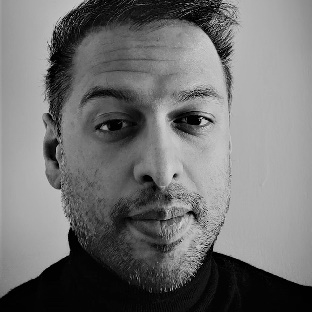So billionaire and former Starbucks CEO Howard Schultz has thrown his hat in the ring to be the next President of the USA.
A billionaire is the current incumbent. There has been talk of Facebook’s friendly leaderbot Mark Zuckerberg making a run sometime soon. (“He wants to be Emperor”, a pal of his helpfully suggested.)
America’s Randian billionaire plutocracy is here in all its grubby glory. American industrialist and philanthropist Andrew Carnegie suggested in the nineteenth century that the ‘organisational abilities’ of the rich man gave him the right to lord over the poor. Now America is living that bizarre fantasy.
In some way they and we always have. Whether it is corporates ‘owning’ congress or parliament, informal party conference events, ‘cash for questions’: the relationship between politics and money is seldom comfortable or clear.
In a time of widespread polarisation within politics, isn’t it time we knocked this dangerous nonsense on the head?
The elite charade of changing the world
Anand Giridharadas, author of the New York Times bestselling book ‘Winners Take All’ thinks so. We had a great time discussing this subject recently at the RSA.
Giridharadas’ view is that our politics and our civil society have been almost totally co-opted by the wealthy. Tech bros will not save our asses. Corporations rebranding themselves as ‘changemakers’ and ‘social entrepreneurs’ only do so to serve their own ends (undermining real, grass-roots versions).
The worst part of it is that government and civil society gave their advantage up for free. The lie of ‘doing good through doing well’ let the new gilded elite use the language of change. By promoting this lie, governments and civil society have screwed both themselves and us.
By suggesting those who cause our social problems with one hand solve them with the other – think big money’s hold on the policy levers of the Obama administration in the wake of the financial crash – we proved our entire system to be a confederacy of chumps.
Giridharadas is a journalist and political storytelling is where he comes to life: it was a whole lot of fun hearing about his travels through the age of cognitive dissonance of the ‘do-gooding’ elites. A certain philanthropic family who invest in cigarettes aimed at poor communities swore an oath that their wares did not cause cancer. Yet they were proud of their health-related charity’s work in those same communities. The denizens of Davos talk about improving the world while baulking at the idea of discussing inequality, let alone redistribution.
My own book The Moral Marketplace raised similar concerns (in a more wonkish way) about banks like JP Morgan dubbing clean water and healthcare in sub-Saharan Africa as ”trillion-dollar profit opportunities”.
A certain pharma company’s Indian subsidiary promotes positive mental health among women with one hand, and sells skin lightening creams on the other – arguing ‘if we don’t do it someone else will.’ These are not merely questions of good taste, but serious challenges as to who decides what change looks like on the ground. If we leave it to the corporations, we are lost.
Aristotle and Alexandria Ocasio Cortez
Listening to Giridharadas speak, I was struck by just how the political debate has in the last few years evolved. He has a sideline as a Twitter personality and it is fun to see him rip into the Davos elite and the propensity of governments to hire Goldman Sachs alums. He has been scathing of the Schultz bid. He is irked too by ‘third way’ approaches to the question of how and when business and government should meet: what we have generally come to regard as ‘centrism’ in its many hues.
The idea of the third way - the centre as defined by Blair, and to a lesser extent Cameron - involved building election-winning coalitions between business and the organs of social justice. Business was there to be courted, their support and resources to be won. Unfettered growth and embarrassing riches were just fine, as long as at least some of its fruits were extended to all. Compromise, pragmatism, moderation: these were the core values.
Now, this centre has shifted. Giridharadas is not what you would consider a militant socialist, but he does support the likes of Alexandria Ocasio Cortez and calls for a new generation of similarly robust politicians who are prepared to speak to values that stand in opposition to those espoused by the Schultzes and Trumps of this world. Demagoguery to take on the demagogues? Not very third way.
The billionaires’ playground
It is reductive to think of this purely as ‘envy of the rich’, ‘class war,’ or ‘rich versus poor.’ I have been thinking about Aristotle’s concept of virtue in connection with all this. We live at a moment of unparalleled economic concentration, with wealth inequality rising sharply and a few firms occupying an increasing proportion of the global economy.
In this moment, what does it say about someone’s suitability for engagement in public life that they have made accumulating billions of dollars of wealth an object of their existence - and that they resist attempts to tax that wealth for the common good?
What does it say about the virtue of these would-be politicians when they seek to enter the political arena as ‘CEO-President’ – thus completely misjudging their own narrow base of experience? Would it not be prudent for them to fall behind those who draw their money from other sources, and whose accountability is to a broad cross-section of people, rather than a tiny elite? In this sense Ocasio Cortez’s ‘crowd-sourced’ candidacy presents a promising model of engagement.
But of course, in an age of Instagram and Trump, these CEOs now want to be out front.
Confrontation as an enlightenment value
We need to be ready for this new wave of bumbling billionaires stepping into the political arena and seeking to co-opt the levers of change to distinctly un-radical ends.
From the RSA’s perspective, in part this means believing in, feeling confident of, and being uncompromising about our identity, ideas, and values as changemakers. It also means critiquing, to some extent, some of the liberal ideas that underpin enlightenment thinking.
My work focusses on asset inequality and community wealth. It is easy to avoid the confrontations demanded by this agenda; to focus on ‘low hanging fruit’ that ruffles few feathers in the name of ‘poverty alleviation’ and ensuring compromise from all voices at the table.
But few who see the current situation clearly, the deserts of poverty and wealth in our country, can advocate anything but a more radical approach to redistribution as a sensible, enlightened way forward - no matter whose feathers get ruffled. There need to be more winners at the bottom and, yes, more loss at the top, alongside a new, locally-led economic model. That’s the challenge we have set ourselves in this new phase of our thinking: let’s see if I make it to the other side.
Billionaires and politics
As for politics: we already have economic ‘fit and proper persons’ tests to exclude those who have transgressed financially in various ways (those under bankruptcy orders, for example). There is at least an argument that billionaire politicians should be banned. Or if not banned, then at least quarantined until remedial measures are taken (Giving to charity would not count. Cutting up your company into little bits might.)
‘Don’t even talk to me about Mark Zuckerberg being President,’ Giridharadas told me. I won’t and I wouldn’t want that for us either. Indeed, for all the good it will do, I’m deactivating my Facebook as I write, at the sheer, hopping madness of it all.
Related articles
-
Bristol’s Colston statue was toppled because racist historical narratives have not been effectively challenged
Becca Antink
Whose history, whose voice, is centred and valued? And whose isn’t?
-
How can we get BAME workers to climb the leadership ladder?
Adarsh Ramchurn
A lack of opportunities, discriminations, and the absence of role models are keeping minority candidates out of leadership positions. Companies, and particularly charities, need to do more.
-
Did the Spring Budget really work for women?
Reema Patel
The Chancellor of the Exchequer yesterday unveiled a Spring Budget on International Women’s Day. But how effective will his announcements be for tackling gender inequality? Reema Patel outlines the announcements in the Budget most likely to affect women.




Be the first to write a comment
Comments
Please login to post a comment or reply
Don't have an account? Click here to register.